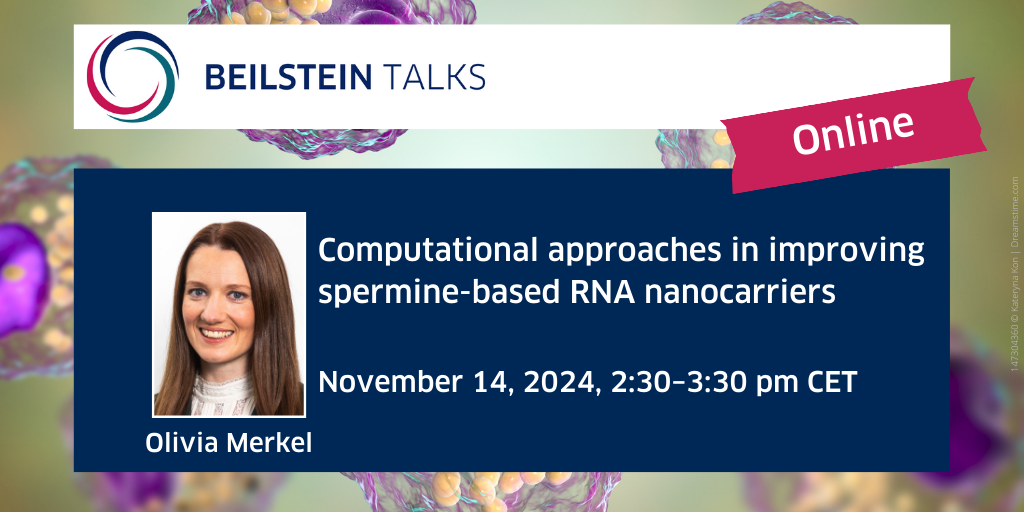Beilstein Talk on computational approaches in improving spermine-based RNA nanocarriers

Beilstein Talks
The Beilstein Talks are an established addition to the Beilstein-Institut’s projects supporting communication and information in science. These online talks are free to attend; a simple registration is all that is required.
Computational approaches in improving spermine-based RNA nanocarriers
Olivia Merkel / Ludwig-Maximilians-Universität Munich, Germany
November 14, 2024, 2:30–3:30 pm CET
Online live talk
👉 Go to the free registration for the online live talk!
Introduction
Delivery is the major hurdle thwarting the therapeutic potential of RNA medicines. While all siRNA drugs on the market target the liver, the lung offers a variety of currently undruggable targets which could be treated with RNA therapeutics. Hence, my lab rationally designs inhalable and biocompatible nanocarriers for efficient siRNA delivery to the lung.
Poly(beta-amino ester)s are biodegradable polymers capable of promoting nucleic acid delivery and can be tailormade to investigate structure–function relationships. We combine Design-of-Experiments (DoE) with Molecular Dynamics Simulations and Machine Learning (ML) to accelerate the discovery and optimization process of these siRNA nanocarriers.
Our previous results show the feasibility of synthesizing oleylamine-modified spermine-based poly(β-amino ester)s (PBAEs) that efficiently encapsulate siRNA into nanoparticles and the low polymer excess avoids problems of toxicity and polymer-induced side effects. The PBAE-based polyspermines successfully delivered siRNA for gene silencing in 2D cultures and Transwell® air-liquid-interface cultures. Additionally, Boc-protected PBAE-based polyspermines mediated therapeutic gene silencing of mutated KRAS resulting in impaired cell migration.
In an effort to compare polymer backbones, polyacrylamide (PAA)-based polyspermines were synthesized and resulted in more efficient siRNA delivery and gene silencing in Transwell® air-liquid-interface cultures compared with Lipofectamine but had a much more favorable safety profile in vitro and in vivo. After intratracheal administration to mice, the PAA-based polyplexes were efficiently taken up by Type II pneumocytes and successfully evaded recognition by macrophages in the lung.
👉 Go to the free registration for the online live talk!
23 Oct 2024






